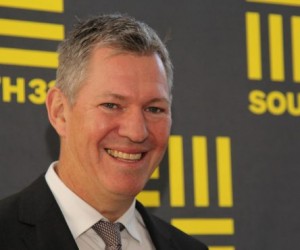Mike Fraser, President and Chief Operating Officer - Africa Region, presented the following address to the illustrious gathering of government officials and industry stakeholders at the 2017 Mining Indaba on 6 February 2017
His Excellence, former President of South Africa, Mr Thabo Mbeki, distinguished guests, honourable ministers and all participants
Good morning.
It is a pleasure to be here at the 2017 Investing in Africa Mining Indaba, representing South32. I am Mike Fraser, President and Chief Operating Officer for Africa.
South32 has operations spanning five countries in Australia, Southern Africa and South America. We are listed in three countries, including here in South Africa on the Johannesburg Stock Exchange.
Despite a challenging year for the resources sector, South32 has produced strong results.
Our strategy is simple - to invest in high quality metals and mining operations where our distinctive capabilities and regional model enable us to stretch performance in a sustainable way.
We have delivered on this strategy by optimising our operations, unlocking their potential by converting our high quality resources into reserves, and identifying and pursuing investment opportunities beyond our portfolio.
We are mindful, however, that we continue to operate in an increasingly volatile global environment, and that the market outlook for commodities remains uncertain. It is also an environment which will likely bring increased pressure from all stakeholders; from shareholders to governments and regulators, to our communities and civil society groups.
My focus today is ‘Creating shared value through effective collaboration’ and I will talk to three main themes on how I believe this may be achieved:
Firstly, I firmly believe that mining still represents a significant vehicle for contributing to South Africa’s economic aspirations, to deliver on society’s expectations and, importantly, that mining is a vehicle for driving shared value and inclusive growth.
Secondly, which I think is also probably common cause, is that South Africa must be globally competitive in order for mining to realise its full potential.
Thirdly, what is critical to becoming more globally competitive, is ensuring that South Africa has a supportive regulatory and legislative framework and administration which will create an environment conducive to investment.
Mining is a key contributor to the South African economy. It makes up about a quarter of the country’s exports and close to 50% of its foreign currency earnings. In other words, mining is a major enabler of South Africa’s participation in global trade and fortunes.
Yet the competitiveness of South Africa’s mining industry is challenged. For some time, input costs have been rising above inflation while resources are declining in quality and are less accessible. Improving the productivity of the South African mining industry is one of the most critical factors to ensure the creation of shared value and inclusive growth. It is one reason why South Africa’s ranking as a mining investment destination does not equate to the country’s mineral wealth.
I won’t pretend the answers are simple. But I will say that solutions can only be found through better collaboration and enhanced trust between key stakeholders and industry.
If we don’t get on the same playing field and face the same goal then, regardless of the country’s natural endowments, South Africa’s mining industry is at risk of not realizing its potential. We know that South Africa is capable of pulling together. The recent example of the collaborative stakeholder response to the threat of a credit down grade demonstrates that strategic alliances in the interests of the economy are possible.
The question is whether we can bring this same mind set to mining. And my view is that we can.
We should be able to come together to create a cohesive and aligned approach to positioning South Africa as an attractive mining jurisdiction in the global resources sector.
As we saw with Mining Phakisa, when all stakeholders don’t come together cohesively, the outcome risks falling short of meeting expectations and delivering on the intended objectives. More than most sectors, mining is particularly sensitive to policy and regulatory certainty. Significant up-front capital investment is required with long-term pay back periods. Stability in policy is a key area where a country can assist in mitigating risk and make it an attractive place to invest. On the flip side, policy instability, can have the opposite effect.
The reality is that South Africa’s mineral legislative framework is undergoing significant flux and the rules will, potentially, be completely changed. This has the potential to impact investor confidence. Open and transparent dialogue with key stakeholders will be required to ensure that changes can be made with minimal impact.
At South32 we understand that if we create shared value where we operate, we are better placed to maximise returns. Consequently, South32 has a stated purpose, which is to make a difference through developing natural resources that improve people’s lives now and for generations to come.
And so guided by our purpose, we fully appreciate that being a responsible corporate citizen and supporting South Africa’s transformation agenda, means going beyond compliance and addressing transformation and Black Economic Empowerment in a holistic way.
As such, we are committed to increasing the representatives of black management and skilled black employees, to find ways to increase the value of business we do with black suppliers and facilitate opportunities for black entrepreneurs to work with us.
South32 has some strong examples of transformation and where we create strategic alliances that deliver on our promise to make a difference.
Take our employees in South Africa for example, over 80% of our workforce is Black along with 50% of our senior management illustrating our commitment to delivering on the human potential of the historically disadvantaged. In addition, almost 20% of our workforce are women and we have ambitious targets to increase this.
In working with suppliers, our enterprise supplier development program is a key lever for utilising resources to unlock shared value. Last year we launched our Intsika portal, facilitating online business access as well as allowing SME’s to register for business opportunities with South32 and other companies. To date over 5000 active companies have registered their business on the Intsika portal, including in Mozambique.
Additionally, we opened walk-in business centres in Middelburg and Phola where training, mentorship and access to business resources are available. Upon opening, the centre averaged 20 to 30 businesses using the facilities each day.
As part of our beneficiation strategy, 9% of Mozal’s primary aluminium is now beneficiated alongside our smelter in Maputo. Aluminium rod is now sold within Mozambique and exported to six other African countries. The factory employs 250 workers, 83% of whom are Mozambican, and created a further 1,000 local jobs indirectly.
An illustration of our BEE partnerships is our decision to keep the Bayside casthouse open following the closure of our Bayside smelter in 2013, by transferring ownership to a BEE consortium and to supply it with liquid metal from our Hillside operations. This initiative has not only facilitated a larger downstream aluminium industry in South Africa, it has also supported the creation of a BEE consortium, Isizinda, which is the first Black-owned and operated company in the aluminium supply chain.
In working with local government, in September 2016, we opened a R74 million desalination plant in Richard’s Bay. This project demonstrates how sound relationships and the right partnership can create shared value. The plant not only ensures that our Hillside operation has an adequate water supply, it has the capacity to supplement the municipal water supply in times of critical shortage. It has also created jobs and contributed to skills development in the surrounding community.
In our coal business we recently awarded a core mining contract – covering pit planning, drilling, blasting and hauling operations – to a 100% Black women-owned mining company.
These few examples illustrate what is possible.
For South Africa to continue to capitalise on the benefits that mining can bring, government and the mining industry need to collaborate and align to create the policy and legislative environment for mining that is supportive of investment.
Regarding the finalisation of the MPRDA, as with any collaborative process, there are differences of opinion and compromises required from all parties. We hope that the amendments to the bill reflect stakeholder input and that it is finalised as soon as possible to enhance certainty and confidence in the industry’s regulatory framework.
There also remains much more to be done to manage the revision of the Mining Charter, which many mining companies would struggle to meet while still remaining globally competitive. To build a competitive, sustainable and inclusive mining industry it is imperative that there is a process to ensure that changes result from proper collaboration between all stakeholders.
This matters to South32.
We believe that with the right conditions we will be able to deliver inclusive growth and meet the expectations of stakeholders as well as deliver to shareholders a return on their capital.
In conclusion we believe South Africa’s mining industry has huge potential to grow.
Although there are challenges, we remain confident that, together, we can unlock this potential by establishing a more enabling environment.
After all the resources are here.
The challenge is for all stakeholders to work together to create an environment where the minerals underground are converted into wealth above ground, creating shared value for all.
Thank you.







